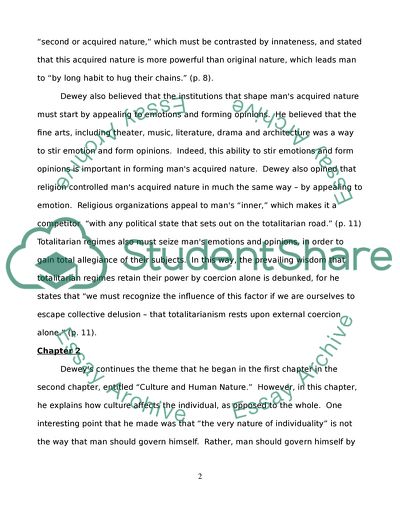Cite this document
(Analysis of John Dewey's Freedom and Culture Book Report/Review, n.d.)
Analysis of John Dewey's Freedom and Culture Book Report/Review. https://studentshare.org/philosophy/1734663-kierkegaard-and-dewey
Analysis of John Dewey's Freedom and Culture Book Report/Review. https://studentshare.org/philosophy/1734663-kierkegaard-and-dewey
(Analysis of John Dewey'S Freedom and Culture Book Report/Review)
Analysis of John Dewey'S Freedom and Culture Book Report/Review. https://studentshare.org/philosophy/1734663-kierkegaard-and-dewey.
Analysis of John Dewey'S Freedom and Culture Book Report/Review. https://studentshare.org/philosophy/1734663-kierkegaard-and-dewey.
“Analysis of John Dewey'S Freedom and Culture Book Report/Review”. https://studentshare.org/philosophy/1734663-kierkegaard-and-dewey.


